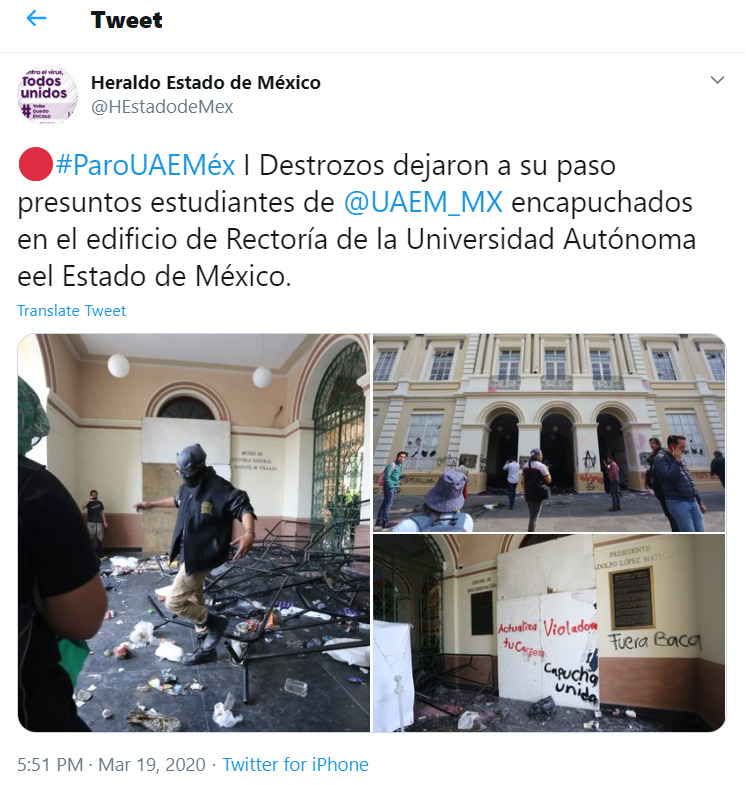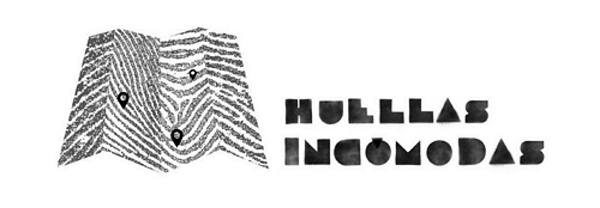Throughout history, feminist movements in Mexico as part of their protests have painted on walls and monuments in the country's major cities. From the nineties, these pints contain messages such as the black cross with pink background, Not One More, Not One Less, The oppressive State is a male rapist, etc. The same institutions erase and eliminate the pints that are directed towards them and thus prevent these traces that expose the misogynistic violence and inaction of the institutions from being seen. At the time of deleting them they omit the possibility of recording and preserving these expressions of citizen discontent and eliminate the subaltern and local history of the nation.
Taking this into consideration, Uncomfortable Footprints arises as a response to prevent pints and other expressions of protest from disappearing without leaving a record and to raise awareness of the whereabouts of these pints and expressions of activists and participants in social movements. In such a way that we work on the documentation, preservation and creation of a digital legacy of social movements in Mexico that fight for a more just society. As a first case is the student-feminist movement of the Autonomous University of the State of Mexico (UAEMex) in Toluca, Mexico, which began in December 2019, intensified in March 2020 and has continued to the present. However, its dynamics have changed since the start of the Covid-19 pandemic.
At this stage, “Uncomfortable Footprints” refers to the trail that this feminist movement has left as a form of intervention, protest and disclosure of the violence and impunity that the patriarchy, governments, institutions have perpetuated and permitted. This trail is timeless because by its very nature it is ephemeral. These marks have the following characteristics:
- They are not made with ephemeral material;
- The same government, society, institutions erase it, forget it or reject it;
- They are harmless but they cause a lot of discomfort to heteronormative discourses, for example when the powerful party is accused, making him see as the victim because of the relationship he has with the power, which limits the counter demonstrations;
- They are accused of damaging the cultural heritage, dirtying the city, or being an erroneous form of protest;
- And, women are pointed out because instead of being the victim is being the victimizer of the heritage.
On the other hand, these "uncomfortable footprints" of the feminist movement are subject to different types of double discourses:
- The marketing ends up appropriating them and therefore causing the discourse to normalize and lose the power of these acts of protest;
- Allied organizations/institutions are created and end up normalizing the problem and limiting the forms of demonstration;
- Other types of social protests are justified and even revered, but protests and intentional traces emerging from feminist movements are undervalued.

From June 2020 until the end of the year, material was received from those who participated in the student-feminist movement in Toluca and data collection from other digital sources was also carried out. After this documentation, different visualizations were made to show different aspects of the movement: two timelines (one on newspapers and one on social media posts), a story map and a dozen juxtapositions of images that allow to compare the appearance of different places with and without pints.
To learn more about the first stage, this video present more about the work on this stage.
"Huellas Incómodas: Building a Transnational Digital Repository to Foment Awareness, Civic Engagement and Responsibility Presented by Rosario Rogel, Ph.D., Universidad Autónoma del Estado de México, Brian Rosenblum and Sylvia Fernández, Ph.D., University of Kansas. Presentation in Seguimos Creando Enlaces 2021.
